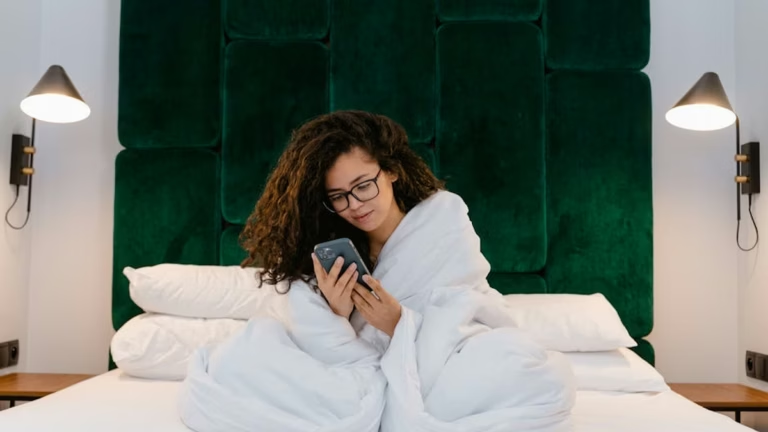Managing Holiday Stress: Relaxation Techniques for a Calm and Joyful Season
The holiday season, often depicted as a time of joy and togetherness, can also be a significant source of stress. From gift shopping and travel arrangements to family gatherings and financial pressures, the demands of the holidays can easily lead to feelings of anxiety and overwhelm. But don’t despair! With the right strategies, you can navigate the holiday season with grace and maintain a sense of calm amidst the chaos. This guide offers practical relaxation techniques to help you manage holiday stress and cultivate a joyful experience.
Understanding Holiday Stress Triggers
Before diving into relaxation techniques, it’s crucial to identify the specific triggers that contribute to your holiday stress. Recognizing these triggers allows you to proactively address them and develop coping mechanisms.
Common Holiday Stressors:
- Financial Strain: Overspending on gifts and travel can lead to post-holiday financial anxiety.
- Time Constraints: Juggling work, social events, and holiday preparations can feel overwhelming.
- Family Dynamics: Navigating complex family relationships and expectations can be emotionally draining.
- Travel Hassles: Dealing with crowded airports, traffic jams, and travel delays can increase stress levels.
- Unrealistic Expectations: Striving for the “perfect” holiday celebration can create unnecessary pressure.
Once you identify your triggers, you can start implementing relaxation techniques tailored to your specific needs.
Effective Relaxation Techniques for Holiday Stress
These techniques can help you manage stress and promote a sense of calm during the holiday season.
Mindfulness Meditation
Mindfulness meditation involves focusing on the present moment without judgment. This practice can help you detach from stressful thoughts and emotions.
- How to Practice: Find a quiet space, sit comfortably, and focus on your breath. Notice the sensation of each inhale and exhale. When your mind wanders, gently redirect your attention back to your breath. Even just 5-10 minutes a day can make a difference.
- Benefits: Reduces anxiety, improves focus, and promotes emotional regulation.
Deep Breathing Exercises
Deep breathing exercises can activate the body’s relaxation response, helping to calm your nervous system.
- How to Practice: Inhale deeply through your nose, filling your abdomen with air. Hold for a few seconds, then exhale slowly through your mouth. Repeat several times. A popular technique is the 4-7-8 method: inhale for 4 seconds, hold for 7 seconds, and exhale for 8 seconds.
- Benefits: Lowers heart rate, reduces blood pressure, and promotes relaxation.
Progressive Muscle Relaxation
This technique involves tensing and releasing different muscle groups in your body to promote relaxation.
- How to Practice: Start with your toes and gradually work your way up to your head. Tense each muscle group for a few seconds, then release and notice the feeling of relaxation.
- Benefits: Reduces muscle tension, alleviates anxiety, and improves sleep.
Physical Activity
Exercise is a powerful stress reliever. Engaging in physical activity releases endorphins, which have mood-boosting effects.
- How to Practice: Take a brisk walk, go for a run, do some yoga, or engage in any activity you enjoy. Aim for at least 30 minutes of moderate-intensity exercise most days of the week.
- Benefits: Reduces stress hormones, improves mood, and boosts energy levels.
Spending Time in Nature
Exposure to nature has been shown to reduce stress and improve overall well-being.
- How to Practice: Take a walk in a park, visit a botanical garden, or simply sit outside and enjoy the fresh air.
- Benefits: Lowers stress hormones, reduces blood pressure, and improves mood.
Setting Realistic Expectations and Boundaries
One of the biggest contributors to holiday stress is unrealistic expectations. It’s important to set realistic goals and learn to say no to commitments that will overwhelm you.
- Tips: Prioritize tasks, delegate responsibilities, and be honest with yourself about what you can realistically accomplish. Don’t be afraid to decline invitations or activities that you don’t have time for.
Prioritizing Self-Care During the Holidays
Amidst the holiday hustle, it’s essential to prioritize self-care. Make time for activities that nourish your mind, body, and spirit.
Self-Care Activities:
- Get enough sleep: Aim for 7-8 hours of sleep per night.
- Eat nutritious meals: Avoid overindulging in sugary and processed foods.
- Stay hydrated: Drink plenty of water throughout the day.
- Engage in hobbies: Make time for activities you enjoy, such as reading, listening to music, or spending time with loved ones.
- Connect with supportive friends and family: Talking to loved ones can help you process your emotions and feel supported.
The holiday season should be a time of joy and connection, not stress and overwhelm. By incorporating these relaxation techniques and prioritizing self-care, you can navigate the holidays with greater ease and cultivate a more peaceful and joyful experience. Remember to be kind to yourself and focus on what truly matters: creating meaningful moments with loved ones and savoring the present moment.





